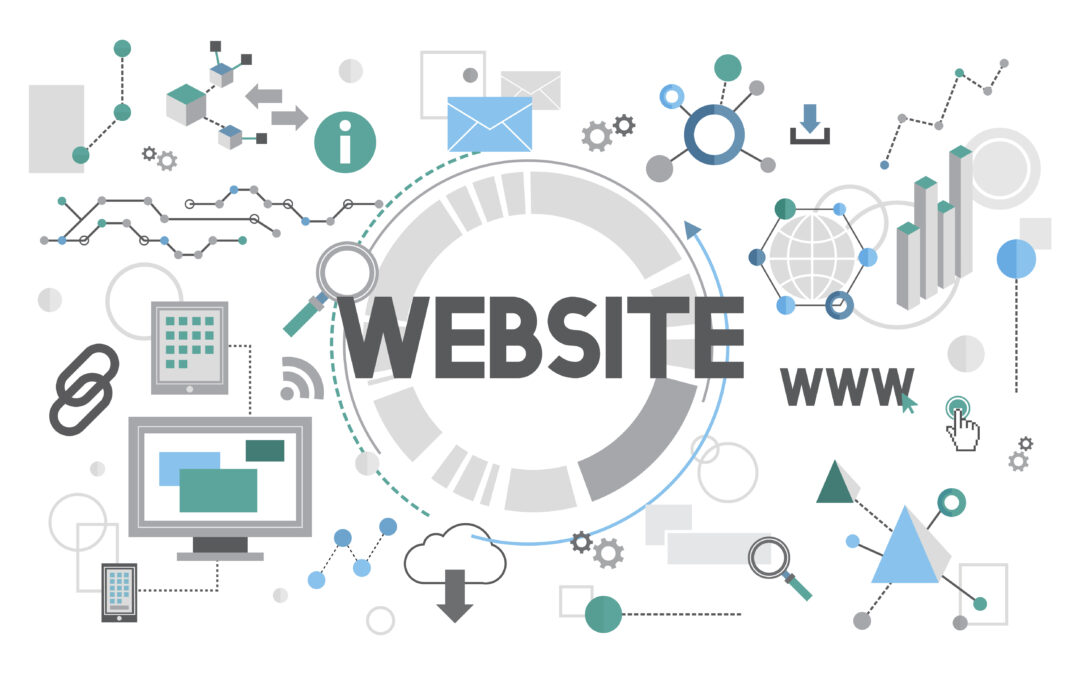
by admin | Aug 26, 2023 | Imran Khan, Pakistan
Imran Khan, full name Imran Ahmed Khan Niazi, is a prominent Pakistani politician, former international cricketer, and philanthropist. He was born on October 5, 1952, in Lahore, Pakistan. Imran Khan has played significant roles in both the world of sports and politics. Here’s an overview of his career and contributions:
1. Cricket Career:
Imran Khan is renowned for his achievements as a cricketer. He was a highly successful all-rounder, known for his fast bowling and batting prowess. Some highlights of his cricket career include:
- Captaincy of the Pakistan national cricket team: Imran Khan led Pakistan to their first-ever Cricket World Cup victory in 1992.
- All-rounder Achievements: He is one of the most successful all-rounders in cricket history, having scored over 3,800 runs and taken more than 380 wickets in Test matches.
- Retirement: Imran Khan retired from international cricket after the 1992 World Cup victory, marking the end of his cricketing career.
2. Political Career:
After retiring from cricket, Imran Khan transitioned into politics and established the Pakistan Tehreek-e-Insaf (PTI) political party in 1996. His political journey includes:
- Political Activism: Imran Khan began advocating for social justice, anti-corruption measures, and reform in Pakistan’s political system.
- PTI’s Growth: PTI gradually gained popularity as a political alternative, focusing on issues such as good governance, economic reform, and social justice.
- 2018 General Elections: In the general elections held in 2018, PTI emerged as the largest party in the National Assembly, and Imran Khan was elected as the 22nd Prime Minister of Pakistan.
- Prime Ministerial Tenure: As Prime Minister, Imran Khan has aimed to address various challenges, including economic stability, governance reform, and social welfare.
3. Philanthropy and Social Work:
Throughout his life, Imran Khan has been involved in various philanthropic activities. He established the Shaukat Khanum Memorial Cancer Hospital & Research Centre (SKMCH&RC) in Lahore, Pakistan, which provides cancer treatment to patients regardless of their ability to pay. He also founded Namal University in Mianwali, which focuses on providing quality education to underserved regions.
Imran Khan’s legacy is marked by his achievements in cricket, his dedication to social causes, and his role as a political leader. His journey from a cricket legend to a prominent political figure has left a lasting impact on Pakistan’s history and society.

by admin | Aug 26, 2023 | Mobile Companies are in Pakistan and India, Pakistan, Uncategorized
How many Mobile Companies are in Pakistan and India and their users?
Pakistan and India have a competitive mobile market with several companies offering mobile services.
In Pakistan, there are major mobile service providers like:
- Jazz (Mobilink): One of the leading mobile operators in Pakistan.
- Telenor: Another prominent operator with a significant user base.
- Zong: Operated by China Mobile Pakistan, it has gained popularity in recent years.
- Ufone: A subsidiary of Pakistan Telecommunication Company Limited (PTCL).
- SCO (Special Communications Organization): Operates in specific regions, mainly serving Azad Jammu and Kashmir and Gilgit-Baltistan.
In India, the mobile market is extensive, and major players include:
- Jio (Reliance Jio): Known for its disruptive pricing strategies and rapid growth.
- Airtel (Bharti Airtel): One of the largest mobile operators in India.
- Vodafone Idea: Formed by the merger of Vodafone India and Idea Cellular.
Number of Mobile Users:
As of my last update, India had one of the largest mobile user bases in the world, with hundreds of millions of subscribers. Pakistan also had a significant number of mobile users, although the number was smaller compared to India.
Mobile Spending:
The daily mobile spending habits of users can vary widely based on factors such as income levels, usage patterns, and geographic locations. In both Pakistan and India, people spend money on various mobile-related services, including voice calls, text messages, data plans, mobile apps, and more. Daily spending on mobile phones can range from small recharges for basic services to larger expenditures for data plans and digital content.
It’s important to note that specific statistics about daily mobile spending might not be readily available and can vary greatly among individuals.
What is the use and uses of mobile phones?
Mobile phones, also known as cell phones or smartphones, have become an integral part of modern life and society. Their versatility and convenience have led to a wide range of uses that extend far beyond simple voice communication. Here are some of the primary uses and purposes of mobile phones:
- Communication: The primary function of mobile phones is communication. They allow users to make voice calls, send text messages (SMS), and use various messaging apps for instant messaging, video calls, and voice notes. Communication can take place locally and globally.
- Internet Access: Mobile phones provide access to the internet, enabling users to browse websites, search for information, read news, and connect with social media platforms. This feature has transformed the way people access and consume information.
- Social Networking: Mobile phones facilitate social interactions through various social media platforms like Facebook, Twitter, Instagram, and more. Users can share updates, photos, and videos, and engage with friends, family, and followers.
- Entertainment: Mobile phones offer a plethora of entertainment options. Users can watch videos, stream movies, and TV shows, listen to music, play games, and even read eBooks.
- Navigation and Maps: GPS-enabled smartphones provide navigation services, helping users find directions, locate places of interest, and plan routes for travel.
- Productivity: Mobile phones serve as productivity tools, with apps for email, calendars, note-taking, task management, and document editing. They enable users to stay organized and efficient on the go.
- E-Commerce: Mobile phones have transformed the way people shop. Users can browse online stores, compare prices, read reviews, and make purchases directly from their devices.
- Banking and Finance: Mobile banking apps allow users to check their account balances, transfer funds, pay bills, and even invest in financial products. Mobile wallets enable cashless transactions.
- Health and Fitness: Health-related apps can track physical activity, monitor heart rate, provide nutrition information, and even offer guided workouts. Users can also access medical information and telemedicine services.
- Photography and Video: Mobile phones have become primary devices for photography and videography. Advanced camera technologies allow users to capture high-quality photos and videos and instantly share them online.
- Education: Mobile phones provide access to educational resources, online courses, language learning apps, and educational games, making learning more accessible and flexible.
- Emergency Services: Mobile phones play a crucial role in emergencies. They allow users to call for help, contact emergency services, and share location information.
- Smart Home Integration: With the rise of smart home devices, mobile phones can control and monitor various aspects of the home, including lighting, security cameras, thermostats, and more.
- Business and Work: Mobile phones are essential for professionals on the go. They enable remote work, communication with colleagues and clients, access to business apps, and email management.
- Environmental Monitoring: Mobile phones can be used to collect and share data for various environmental monitoring purposes, such as weather forecasting, pollution tracking, and wildlife observation.
The uses of mobile phones continue to expand as technology evolves and new apps and functionalities are developed. They have become an indispensable tool that enhances various aspects of daily life and contributes to the interconnectedness of the modern world.

by admin | Jul 24, 2023 | Digital Marketing, Social Media
Social media presence has become increasingly necessary in modern life due to its pervasive impact on various aspects of our personal and professional spheres. Social media platforms have revolutionized the way we communicate, share information, and connect with others. Here are some reasons why social media presence is considered vital in modern life:
- Communication and Networking: Social media platforms provide instant communication channels, allowing people to connect with friends, family, colleagues, and even strangers from all around the world. It fosters networking opportunities, enabling individuals to build and maintain relationships effortlessly.
- Information Sharing and Awareness: Social media serves as a hub for news, trends, and updates on various subjects. It is a powerful tool for spreading information rapidly, creating awareness about social issues, and mobilizing support for various causes.
- Personal Branding and Professional Growth: Social media allows individuals to showcase their skills, expertise, and talents, creating a personal brand. This branding can be beneficial for professional growth, career opportunities, and personal development.
- Marketing and Business Growth: For businesses, social media presence is now a fundamental aspect of marketing strategies. Companies can reach a vast audience, engage with potential customers, and promote products and services efficiently through social media platforms.
- Community Building: Social media enables the formation of online communities based on shared interests, hobbies, or affiliations. These communities offer a sense of belonging, support, and a platform to exchange ideas and experiences.
- Access to Global Information and Perspectives: Social media breaks down geographic barriers and provides access to diverse perspectives and cultural experiences from around the world. It fosters global understanding and empathy.
- Entertainment and Content Consumption: Social media platforms offer a plethora of entertainment options, from videos and photos to articles and memes. It has become a primary source of entertainment for many individuals.
- Real-Time Communication: Social media allows real-time interaction with individuals or groups, making it a valuable tool for staying informed during emergencies, natural disasters, or other time-sensitive situations.
- Personal Expression and Creativity: Social media provides a platform for individuals to express themselves creatively, whether through visual arts, writing, music, or other forms of content creation.
- Influence and Advocacy: Social media has empowered individuals and groups to advocate for social causes, raising awareness about important issues and driving change through collective action.
Despite the numerous benefits, social media presence also comes with certain challenges, such as privacy concerns, the potential for misinformation, cyberbullying, and the addictive nature of these platforms. Striking a balance between the positive aspects and mindful usage is essential to make the most out of social media without compromising mental well-being and personal boundaries.
In conclusion, social media presence is undeniably necessary in modern life due to its transformative impact on communication, information sharing, networking, personal branding, and business growth. However, it is crucial to use social media mindfully and responsibly to harness its potential benefits while mitigating its potential drawbacks.

by admin | Jul 24, 2023 | Digital Marketing, Websites
Introduction
In today’s digital age, the internet has become an integral part of our lives. Businesses, both large and small, have recognized the potential of the online realm and are rapidly shifting their operations to the virtual world. One of the fundamental pillars of this transition is the necessity of having a website. In this blog, we will delve into the reasons why websites are indispensable for any business in today’s world.
Establishing a Digital Presence
The first and most obvious reason why websites are crucial for businesses today is that they serve as a digital storefront, enabling them to establish a powerful online presence. With billions of internet users worldwide, having a website allows a business to reach a vast audience, transcending geographical boundaries. Potential customers can easily discover and learn about the products or services a company offers, making the website an essential marketing tool.
24/7 Availability and Accessibility
Unlike traditional brick-and-mortar stores with fixed operating hours, a website remains accessible 24/7. This constant availability allows customers to browse products, make inquiries, and even complete purchases at their convenience, regardless of time zones. By being open round the clock, businesses can cater to a global audience and maximize their revenue potential.
Building Credibility and Trust
A well-designed website adds credibility to a business. Customers often perceive companies with professional websites as more reliable and trustworthy. A website offers an opportunity for businesses to showcase their expertise, testimonials, and achievements, thereby instilling confidence in potential clients. Furthermore, customers expect modern businesses to have an online presence, and the absence of a website can raise doubts about legitimacy.
Cost-Effective Marketing
Compared to traditional advertising methods, websites offer a cost-effective way to market products and services. With digital marketing tools like search engine optimization (SEO), social media marketing, and email campaigns, businesses can target specific audiences and measure the impact of their marketing efforts accurately. This targeted approach not only saves money but also increases the chances of reaching potential customers who are genuinely interested in what the business has to offer.
Engaging Customer Interaction
Websites provide a platform for interactive communication between businesses and their customers. Features like live chat support, contact forms, and customer feedback mechanisms enable businesses to understand their customers’ needs better. This valuable feedback helps in improving products and services, fostering customer loyalty, and building long-term relationships.
Showcasing Products and Services
For businesses that offer products, a website acts as a digital catalog, allowing them to showcase their offerings in a visually appealing manner. High-quality images, detailed descriptions, and customer reviews aid potential buyers in making informed decisions. In the case of service-based businesses, websites can highlight the benefits and features of their services, giving customers a clear understanding of what they can expect.
Insightful Analytics
Websites come equipped with analytical tools that provide invaluable data on user behavior and website performance. Business owners can gather information on website traffic, popular pages, conversion rates, and more. This data-driven approach enables them to make data-backed decisions, optimize their website, and refine marketing strategies for better results.
Competing in the Digital Landscape
The absence of a website can significantly hinder a business’s ability to compete in the modern digital landscape. Many competitors are already leveraging the power of the Internet to attract customers and expand their reach. Having a strong online presence through a well-designed website is no longer an option but a necessity for businesses to stay relevant and competitive in their respective industries.
Adaptability and Flexibility
Websites allow businesses to adapt and respond quickly to market changes and customer demands. Whether it’s updating product information, introducing new offers, or modifying business strategies, a website provides the flexibility to implement changes promptly. This agility is crucial in an ever-evolving business environment.
Conclusion
In conclusion, the significance of websites in the present business scenario cannot be overstated. They serve as the digital gateway to a company, providing an array of benefits ranging from establishing credibility and reaching a broader audience to offering cost-effective marketing solutions and real-time customer interaction. As businesses continue to embrace the digital revolution, having a well-designed, informative, and engaging website remains a prerequisite for success in the dynamic world of commerce. Embracing this technology is not just an option; it is a vital step toward future-proofing any business in the increasingly interconnected and digitalized world we live in today.

by admin | Jun 17, 2023 | How to make a Website, How to make an auto blogging News website with WordPress
In this blog and video, I will show you How to make an auto blogging News website with WordPress Building an Automatic News Website and Auto Blogging System: Step-by-Step Guide Welcome to our comprehensive tutorial on creating an automatic news website and setting up an auto blogging system. In this video, we will guide you through the process, from start to finish, to help you develop a dynamic and efficient platform for automatically aggregating and publishing news articles. Whether you’re a seasoned web developer or a beginner, this tutorial is designed to be accessible and informative. It provides you with the knowledge and tools necessary to build an automated news website that updates itself with the latest news content. By the end of this video, you’ll have a fully functional system that saves you time and effort while keeping your website fresh and engaging. Here’s what you can expect to learn in this tutorial: How to make an auto blogging News website with WordPress: Understand the benefits and potential use cases for an automatic news website and how it can streamline your content creation process. Planning and Preparation: Learn the critical considerations for designing your website, including target audience, niche selection, and content sources.
Setting Up a Content Management System (CMS): Discover popular CMS options and select one that aligns with your requirements. We’ll guide you through the installation process and provide an overview of essential features. Automatic Content Aggregation: Explore various methods of gathering news articles automatically, such as utilizing RSS feeds, web scraping, and API integrations. Content Filtering and Curation: Implement strategies to filter and curate incoming news articles based on relevance, quality, and other criteria to ensure the content meets your website’s standards. Auto Blogging Setup: Configure your website to automatically publish curated news articles at specified intervals, allowing your website to stay up-to-date without manual intervention. Design and Customization: Enhance the visual appeal of your news website by selecting an appropriate theme, customizing layouts, and optimizing user experience.





